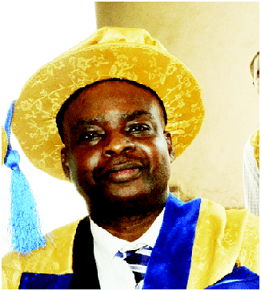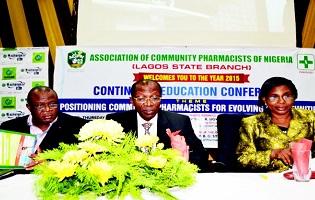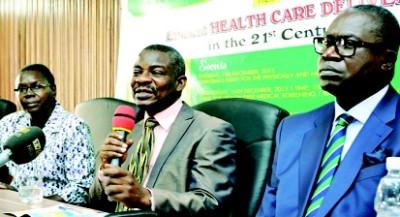
 Rheumatism” is derived from the Greek word “rheuma,” which means a swelling.
Rheumatism” is derived from the Greek word “rheuma,” which means a swelling.
It refers to an acute or chronic illness, which is characterised by pain and swelling of the muscles, ligaments and tendons or of the joints. It is a crippling disease, which causes widespread invalidism, but seldom kills.
This disease affects men and women, both young and old. Quite often, it extends to the heart and the valves, and the lining of this vital organ becomes inflamed. It is the most common cause in 80 per cent of the cases of valvular organic diseases of the heart.
Rheumatism, perhaps, more than any other disease, although readily diagnosed, is never the same in any two individuals. There are too many variations in the development of the disease.
Broadly speaking, however, rheumatism, which may be acute or chronic, can be roughly grouped into two classes. These are: muscular rheumatism, which affects the muscles; and articular rheumatism, which affects the joints. The muscular variety is, however, far less common than that affecting the joints.
In the acute form, it is found among children and young people. But in the chronic form, it is generally confined to the adults.

Arthritis: Not a single disease
Arthritis literally means joint inflammation. Arthritis is not a single disease. Arthritis refers to a group of more than 100 rheumatic diseases and other conditions that can cause pain, stiffness and swelling in the joints.
Any part of your body can become inflamed or painful from arthritis. Some rheumatic conditions can result in debilitating, even life-threatening complications or may affect other parts of the body, including the muscles, bones, and internal organs.
The two most common types of arthritis are osteoarthritis and rheumatoid arthritis. The incidence of arthritis increases with age, but nearly three out of every five sufferers are under age 65.
If left undiagnosed and untreated, many types of arthritis can cause irreversible damage to the joints, bones, organs, and skin.
Osteoarthritis
Osteoarthritis, also known as degenerative joint disease, results from wear and tear. The pressure of gravity causes physical damage to the joints and surrounding tissues, leading to:
* pain
* tenderness
* swelling
* decreased function
Initially, osteoarthritis is non-inflammatory and its onset is subtle and gradual, usually involving one or only a few joints. The joints most often affected are the:
* knees
* hips
* hands
* spine
Risks of osteoarthritis increase with age. Other risk factors include joint trauma, obesity, and repetitive joint use.
Rheumatoid arthritis
Rheumatoid arthritis is an autoimmune disease that occurs when the body’s own immune system mistakenly attacks the synovium (cell lining inside the joint). Rheumatoid arthritis is a chronic, potentially disabling disease which causes:
* joint pain
* stiffness
* swelling
* loss of joint function
While the cause remains elusive, doctors suspect that genetic factors are important. Rheumatoid arthritis can be difficult to diagnose early because it can begin gradually with subtle symptoms.
Juvenile arthritis
Juvenile arthritis is a general term for all types of arthritis that occur in children. Juvenile rheumatoid arthritis is the most prevalent type of arthritis in children. There are three major types:
* polyarticular (affecting many joints)
* pauciarticular (pertaining to only a few joints)
* systemic (affecting the entire body)
Signs and symptoms of juvenile rheumatoid arthritis vary from child to child. No single test can conclusively establish a diagnosis. Juvenile arthritis must be present consistently for six or more consecutive weeks before a correct diagnosis can be made.
Psoriatic arthritis
Psoriatic arthritis is similar to rheumatoid arthritis. About five per cent of people with psoriasis, a chronic skin disease, also develop psoriatic arthritis. In psoriatic arthritis, there is inflammation of the joints and sometimes the spine.
Fibromyalgia
Fibromyalgia syndrome is a painful condition characterised by muscle pain, chronic fatigue and poor sleep. The name fibromyalgia means pain in the muscles, ligaments and tendons. Fibromyalgia is a type of soft tissue or muscular rheumatism and does not cause joint deformities.
Gout
Gout is a painful type of arthritis that causes sudden, severe attacks of pain, tenderness, redness, warmth, and swelling in the joints, especially the big toe. The pain and swelling associated with gout are caused by uric acid crystals that precipitate out of the blood and are deposited in the joint.
Pseudogout / CPPD
Pseudogout, which is also known as Calcium Pyrophosphate Dihydrate Deposition Disease (CPPD), is caused by deposits of calcium phosphate crystals (not uric acid) in the joints. CPPD is often mistaken as gouty arthritis. Since CPPD is a different disease from gout, treatment is not the same as gout.
Scleroderma
Scleroderma is a disease of the body’s connective tissue that causes thickening and hardening of the skin. It can also affect the joints, blood vessels and internal organs.
Lupus / SLE
Systemic Lupus Erythematosus (SLE) is an autoimmune disease that can involve the skin, kidneys, blood vessels, joints nervous system, heart and other internal organs.
Symptoms vary, but may include a skin rash, arthritis, fever, anaemia, fatigue, hair loss, mouth ulcers, and kidney problems. Symptoms usually first appear in women of childbearing age, but, can occur in children or older people. About 90 per cent of those affected are women.
Recognising signs and symptoms of arthritis
Because there are over 100 different types of arthritis, symptoms of the disease can be variable, but there are certain signs which point to the disease.
You might suspect you have arthritis if you have signs and symptoms which include the following:
*Persistent joint pain.
* Pain or tenderness in a joint which is aggravated by movement or to fill out a written questionnaire at your first appointment.
Be ready for your medical history by having a list of current medications, medication allergies, past and present medical conditions you are being treated for, and the name of your primary doctor and other specialists, along with their contact information.
Keep a symptom diary. A symptom diary can help you keep track of pertinent facts about your condition and also help you track changes that may occur. With the diary, you are more inclined to give your doctor a good overall picture of the symptoms you are experiencing.
Physical examination
Your doctor will perform a physical examination to try to see any visible signs and symptoms that point to arthritis:
* Redness/warmth around a joint (inflammation)
* Joint stiffness or tenderness
* Joint fluid or swelling
* Bumps or nodules
* Pattern of affected joints (e.g. symmetric or asymmetric)
* Limited range of motion
* Fever
* Fatigue
Laboratory tests
After a medical history and physical examination have been completed, your doctor will likely need more information. Blood tests can provide more specific information and often serve to confirm what the doctor suspects is the diagnosis. Blood tests are also used to monitor disease activity and treatment effectiveness after a diagnosis has been established.
Treatment of arthritis
An effective arthritis treatment regimen can help manage the disease. There are many treatment options which you should know about. Over time, you may try several different treatments and change your treatment plan. Finding the best treatment for you can be a long process.
Goals of arthritis treatment
The goals of arthritis treatment are to:
* Decrease arthritis symptoms
*Slow progression of the disease
* Prevent or minimise joint damage and deformities
* Maintain joint function
* Preserve mobility and range- of-motion
People with early symptoms of arthritis are often inclined to self-treat with over-the-counter medications, topical creams, or conservative measures such as ice and heat. The Arthritis Foundation recommends seeing a doctor if you have joint pain, stiffness, or swelling which persists for two or more weeks, whether or not your symptoms began suddenly or gradually. Only a doctor can diagnose arthritis. An accurate diagnosis is needed so treatment can begin.
A rheumatologist (arthritis specialist) will help you understand all of your treatment options and also help you steer clear of unproven remedies. Discuss the potential benefits and risks of each treatment option with your doctor.
Arthritis medications
Medications are considered traditional treatment for arthritis. Depending on the severity of your arthritis symptoms when you first consult with your doctor, one or more medications will likely be prescribed.
Drug classes used to treat arthritis include:
* NSAIDs (nonsteroidal anti-inflammatory drugs)
* COX-2 Inhibitors
* Pain Medication (analgesics)
* Corticosteroids
* DMARDs (disease-modifying anti-rheumatic drugs)
* Biologic Response Modifiers (i.e. Biologics)
Injections into a joint
There are several types of injections which can be given locally into the joint. Viscosupplementation is a procedure that involves the injection of gel-like substances (hyaluronates) into a joint (currently approved for knee) to supplement the viscous properties of synovial fluid. The five types are:
* Synvisc
*Orthovisc
* Supartz
* Euflexxa
* Hyalgan
Local steroid injections can be used for a specific, painful joint.
Three steroid injections per year into a joint is the maximum allowed by most doctors. Steroid injections were used long before viscosupplementation became a treatment option. Both are still used though, depending on patient preference.
Natural treatments
Some people are more interested in natural treatments than traditional medications. If you prefer a natural approach to treating arthritis, it’s still imperative that you tell your doctor what you are taking or what you want to try. There are many natural treatment options, also referred to as alternative treatments, which are popular but not fully endorsed for effectiveness and safety. Be aware.
* Acupuncture / Acupressure
* Biofeedback
* Chiropractic
* Magnets
* Massage
* Meditation
* Tai Chi
* Yoga
* Supplements such as fish oil, glucosamine, chondroitin, MSM
Complementary medicine
The terms, complementary medicine and alternative medicine, are sometimes used interchangeably. The difference is that complementary treatments are used together with your usual treatment regimen. Alternative treatments imply that they are used instead of your usual treatment.
Regular exercise is strongly recommended for arthritis patients. Exercise can reduce pain and improve physical function, muscle strength, and quality of life for people with arthritis.
Eating a nutritious diet is important for maintaining ideal weight and for bone health too. There is no known diet which can cure arthritis, but eating well is important.
Stress management may also be useful as a complementary treatment. Reducing stress helps to reduce pain and stiffness associated with arthritis.
Surgical options
Joint surgery is usually considered a last resort treatment option. Joint surgery is typically considered if other more conservative treatment measures are unsatisfactory or have stopped working. When joint damage is severe and when pain interferes with daily activities, joint surgery may be an option with the goal of decreasing pain and restoring function.
Pain relief
Pain is debilitating and can greatly interfere with daily living. Better treatments are always being sought, so people living with arthritis pain can achieve pain
When symptoms affect normal activities
If symptoms are severe enough to interfere with normal functioning and your ability to perform usual activities early in the course of rheumatoid arthritis, you may bite the bullet and go to the doctor. The disruption in your life serves as the incentive to consult with a doctor.
If symptoms are not terribly disruptive, you may choose to wait before consulting a doctor. It is really quite simple is there a sense of urgency? A sense of urgency, or lack of, dictates when a doctor is consulted.
Explanation of symptoms
How did your aches and pains begin? Was there an event, such as an injury, that caused your symptoms? Did the symptoms begin gradually or suddenly, without obvious cause?
Typically, patients who feel comfortable with the explanation of their symptoms will wait before consulting a doctor. For example, if you walked into a wall and you developed aches and pains, you are more likely to give the symptoms a chance to subside on their own. But if there is no logical explanation surrounding your symptoms, you likely will choose to see a doctor, so the symptoms can be evaluated.
Knowledge of rheumatoid arthritis and treatment options
If you know much about rheumatoid arthritis, you know that an accurate diagnosis and early treatment is essential. Early treatment with DMARDs (disease-modifying anti-rheumatic drugs) and biologics may help prevent joint damage and subsequent disability. With new treatments treatments that were marketed since 1998 the prognosis for rheumatoid arthritis is better. Realising that early treatment is important, is it not worth consulting a doctor and agreeing on your treatment regimen, so you can be assured that you are on the right path?
Attitude towards the medical profession
If you have had positive experiences with doctors in the past, you are more likely to consult with a doctor about your aches and pains sooner rather than later. If you have respect for doctors in general, and if you trust those you have had in the past, you likely will not balk at getting your symptoms checked out.
The problem occurs if you have a history of bad medical experiences, or if you find it difficult to trust doctors. There are even conspiracy theorists who think doctors like to keep us sick because drug companies give them kickbacks to do so.
Point to remember
Simply put, if your symptoms are interfering with normal life, if you understand that early treatment is important, and if you trust your doctor to know what to do and how to help you, you are more likely to see the doctor.
Misconceptions about arthritis
There are many misconceptions about arthritis. The most common misconceptions about arthritis seem to persist. Patients need facts and valid information, not myths and misconceptions, so they can better manage their illness.
Misconception #1 – Arthritis is an old person’s disease
Fact: Anyone can have arthritis.
The most common misconception about arthritis is that it is a disease only of old people. In actuality, arthritis can affect anyone at any age, not just the elderly, including children, young adults and middle-aged people.
Arthritis is not age or gender specific. There are over 100 different types of arthritis and related rheumatic conditions and some are more commonly found in particular groups.
Rheumatoid arthritis, fibromyalgia, and lupus are more commonly found in women than men. Gout and ankylosing spondylitis appear more often in men than women. In terms of gender, psoriatic arthritis affects men and women nearly equally. Older people are more inclined to have osteoarthritis, the degenerative form of arthritis.
Misconception #2 – Arthritis is induced by a cold, wet climate
Fact: Climate itself is neither the cause, nor the cure.
It has long been theorised that arthritis is caused by a cold, wet climate. Moving to a warm, dry climate has been regarded by some as the cure. Logically, one can infer that if a warm climate cured arthritis, no one in other warm regions would have arthritis. Bone rubbing on bone after cartilage has worn away causes pain in any climate. However, warmth can be soothing. People without arthritis often feel better in warm climates too.
Warmth may relieve symptoms of arthritis, as does soaking in a hot-tub or taking a hot shower.
Misconception #3 – Arthritis can be cured
Fact: There has been no scientific evidence that a cure for arthritis exists.
The notion that arthritis can be cured is a fallacy. To date, there is no known cure for the disease. Much has been discovered, in terms of better treatment options and slowing down the disease progression, but nothing yet has been found to successfully halt the disease. Since there are so many different types of arthritis, the prognosis varies.
Since arthritis is a lifelong process, the importance of gaining knowledge and understanding of your own health condition cannot be overstated.
Misconception #4 – Arthritis is caused by a poor diet
Fact: There is no scientific evidence that specific foods prevent or cause arthritis.
There has been an abundance of speculation about the importance of diet with regard to arthritis. It is certain that a nutritious, well-balanced diet and ideal weight maintenance improves overall health and wellness for everyone. There are a few examples where there is a definite diet connection, such as between high uric acid levels and gout.
There is no scientific evidence, though some specific foods prevent or cause arthritis. Good diet does not prevent arthritis. Unless a person is found to have a particular food allergy which causes their arthritis to flare, there is no proven direct link between a particular food source and arthritis.
Misconception #5 – Arthritis consists of only minor aches and pains
Fact: Arthritis consists of much more than just minor aches and pains.
It is another common misconception that arthritis exhibits only minor aches and pains. Television commercials, which claim that a couple of aspirin or another over-the-counter pain reliever takes away the minor aches and pains of arthritis, tend to mislead the public.
Such advertising, along with a lack of knowledge about the disease, expand some people’s unawareness of the more complex forms of arthritis, which require more aggressive forms of treatment.
Misconception #6 – “You felt fine yesterday… why so tired today?”
Fact: There is variation in the duration and severity of the symptoms of arthritis.
Since arthritis is a disease characterised by periods of flares and remissions, it is often difficult for the family and friends of an arthritic person to comprehend why they feel so much better or so much worse on any particular day. The inconsistency of arthritis can even lead some people to believe the disease is “all in your head”.
Arthritis is characterised by a mix of good days and bad days. Some days, the joint pain and fatigue is more exacerbated. A balance between rest and activity may be necessary to best manage living with arthritis.
Misconception #7 – “You have arthritis, you can’t….”
Fact: There is much a person with arthritis CAN do.
The limitations that arthritis imposes on an individual can cause people closest to them to become overprotective. Sometimes people do too much to try and help the person with arthritis. The disease does interfere with some physical ability, but certainly the arthritic person should not be viewed as totally dependent and invalid.
A certain amount of help and dependence is likely to be required. It must be remembered though that it is best to maintain as much independence as possible for both physical and emotional reasons.
Report compiled by Adebayo Folorunsho-Francis with additional information from Dr. Zashin, author of “Arthritis Without Pain” and About.com Health’s Disease and Condition




























 Centrum Pregnancy care supplement contains 19 vitamins all fat soluble vitamins except K: (Vitamin A – Betacarotene, D, E and Water Soluble vitamins (Vitamin B – Complex and Vitamin C), the combination of essential vitamins help mothers and the healthy growth of the baby.
Centrum Pregnancy care supplement contains 19 vitamins all fat soluble vitamins except K: (Vitamin A – Betacarotene, D, E and Water Soluble vitamins (Vitamin B – Complex and Vitamin C), the combination of essential vitamins help mothers and the healthy growth of the baby.







